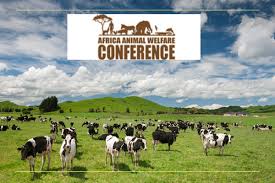At the 8th Africa Animal Welfare Conference, the call for collective action to enhance animal welfare and environmental sustainability rang clear through the speech delivered by AU-IBAR’s Director, Dr Huyam Sahil, during the opening of the conference.
The theme, “Partnership Actions to Improve Animal Welfare and Environmental Sustainability,” framed the conversation, underscoring the critical links between animal welfare and Africa’s broader development goals.
This focus aligned with key global and continental frameworks such as the UNEA 5.2 Resolution and Agenda 2063, setting the stage for transformative discussions.
While the potential of animal resources to boost food security and socio-economic development was recognized, significant challenges—like underinvestment, outdated infrastructure, and limited capacity—continue to hinder progress.
To address these barriers, AU-IBAR is championing several key frameworks, including the Livestock Development Strategy for Africa (LiDeSA), the Animal Health Strategy for Africa (AHSA), and the Animal Welfare Strategy for Africa (AWSA).
An update on AWSA’s implementation revealed slow progress due to gaps in monitoring and coordination. A recent stock-taking exercise highlighted obstacles such as weak institutional frameworks and inadequate funding. To overcome these, revitalizing the African Platform for Animal Welfare (APAW) was emphasized as essential for ensuring well-coordinated efforts across the continent. Strengthening partnerships was a central message, calling for deeper collaboration to promote policy adoption and ensure long-term sustainability.
According to the report distributed by the APO Group on behalf of The African Union – Interafrican Bureau for Animal Resources (AU-IBAR), the participants were encouraged to actively engage in advancing the animal welfare agenda, working towards a future where humans, animals, and the environment coexist in harmony.
The vision was clear: a united effort can pave the way for a healthier, more sustainable Africa.
GIK/APA


